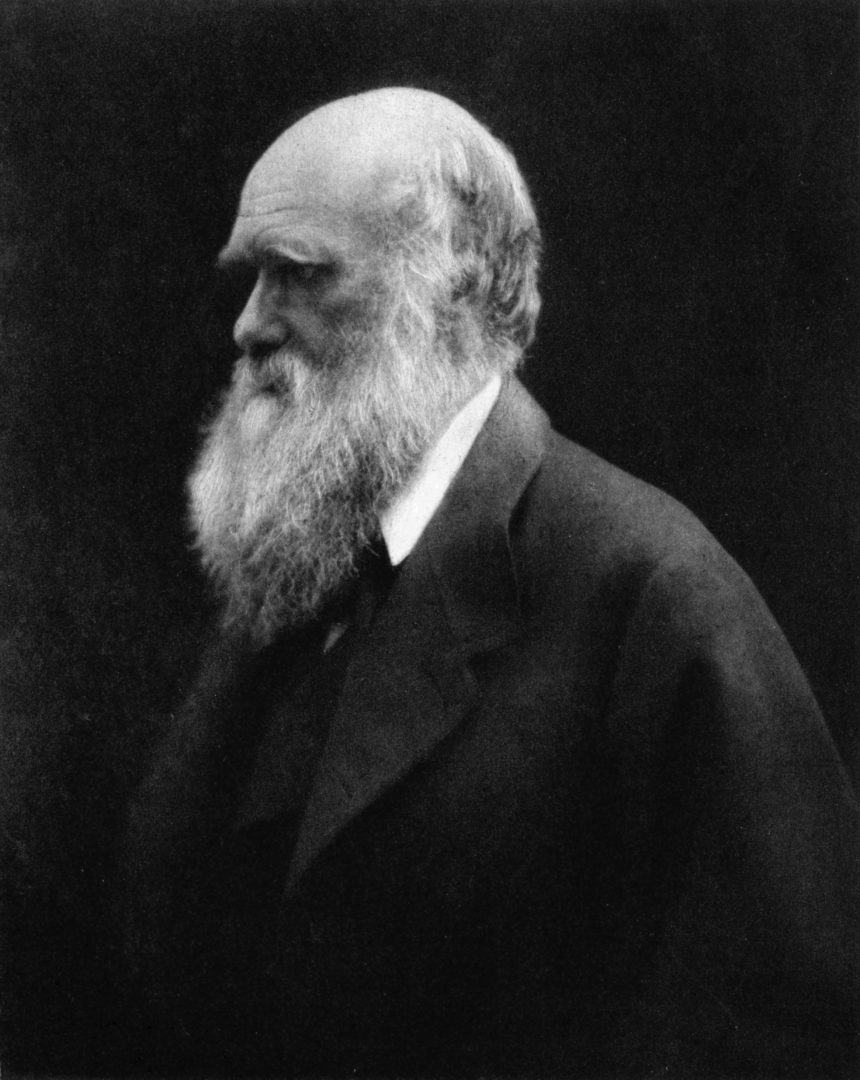“Survival of the fittest” is a term that was coined by Herbert Spencer, not by Charles Darwin. What Spencer intended to express by it was certain perfectibility in human affairs which Darwin never postulated, and a certain Lamarckian notion that self-improvement achieved by parents could be inherited by their children.
Jean-Baptiste Lamarck, of course, was the biologist who believed that giraffes stretched their necks by reaching for juicy leaves and that therefore their children had long necks. He also believed that there was a force in nature that drove organisms toward increasing complexity and order. So did Herbert Spencer.
In 1858 Spencer published his outline of a System of Social Philosophy, which he was to work on almost until his death in 1903. In 1859 On the Origin of Species was published by Charles Darwin. Spencer read it and incorporated some of its ideas into his philosophy.
There are critical differences.
Charles Darwin believed that organisms adapted to changing conditions though natural selection: the best-adapted organisms had the most offspring, the best adapted of who had the most offspring, and so on. Changing conditions (crowded habitat, climate change, change in the food supply, etc.) made different offspring best adapted in each generation, and so organisms evolved to meet different circumstances. This is a theory that mandates adaptation in response to change, not progress.
Spencer, with Lamarck, believed in progress.
Supplanting religious ideas of perfectibility through faith (Spencer was agnostic), Spencer’s philosophy postulated a pre-ordained drive toward perfectibility. Aggression, for example, no longer necessary or useful in modern society, will die out of our species. Eventually, those humans who are less evolved, meaningless elevated, will be replaced by a race of superior beings. Progress, its goal reached, will stop.
 For Darwin, change was driven by chance: offspring that happened to match conditions were born in each generation and succeeded better than their unlucky competitors. For Spencer, there was a force at work that drove the human race towards improvement, and that force saw to it that the fittest survived.
For Darwin, change was driven by chance: offspring that happened to match conditions were born in each generation and succeeded better than their unlucky competitors. For Spencer, there was a force at work that drove the human race towards improvement, and that force saw to it that the fittest survived.
Darwin saw that the better adapted survived better, but Spencer thought that those who survived were therefore better.
The term social Darwinism first appears in English in an article by Oscar Schmidt, a German zoologist. It reached its highest popularity though, with the book Social Darwinism in American Thought, published by historian Richard Hofstadter during World War II. He was not for it. Neither Darwin nor Spencer used the term.
Because of his belief that the behaviors of the parents could lead to change in the children, Herbert Spencer really did believe that it was wrong to help the undeserving poor. Excessive charity could break the link between action and consequence and thus hinder the progress of the whole human race by, in effect, training a part of it to behave badly. Therefore, only the deserving poor should be assisted.
Spencer’s beliefs, as well as those of some of his contemporaries such as Thomas Huxley and Thomas Malthus, were used by those who advocated eugenics, the “science” of preventing the unfit from breeding. Charles Darwin considered eugenics, but knowing his own family history was not immaculate, and feeling it impractical, rejected it. This although the strongest advocate of eugenics in his day, and the man who coined the term, was his half-cousin, Francis Galton. The abolition of aid to the poor and inefficient would encourage the birth of fewer children, social Darwinists thought, or, failing that, fewer of the children born to the poor would survive to reproduce.
The main criticism of social Darwinism today
The main criticism of social Darwinism today is that it advances the idea that inequality in society is morally right. Those who succeed and gather power or money are actually morally superior to those who do not, and deserving of their outsize portion, according to the tenets of social Darwinism. So much for starving artists, scientists, soldiers, Ph.D. candidates, social workers, and teachers.






